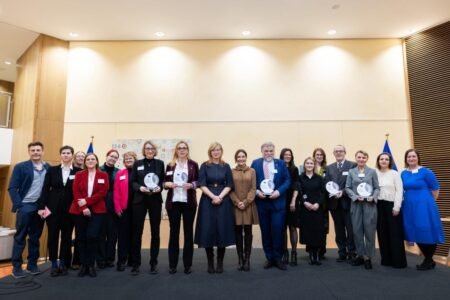— last modified 11 March 2020
Responding to the Commission Circular Economy Action Plan published today, EuroCommerce Director-General Christian Verschueren underlined the retail and wholesale sector?s support for the plan?s objective of for speeding up the transition to a circular economy:
“We applaud Europe’s leadership in responding to urgent and global environmental pressures and scarcity of resources. Retailers and wholesalers are already showing their commitment to circularity and working with suppliers on many fronts – redesigning their own-brand packaging to ensure more recyclability, launching new business models such as repair and re-use of furniture, or renting electronic devices. These and many other activities are part of shift to a products-as-a -service business model. And consumers are responding to this positively, creating a virtuous circle of demand for sustainable, repairable and more recyclable products.”
Retailers and wholesalers will engage in helping the Action Plan succeed, but face some hurdles where the EU and governments can help:
- Responsibility needs to be spread throughout the supply chain from producers down to the consumers
- We need consistency and harmonisation in EU and national legislation to remove numerous regulatory barriers to doing the right thing with valuable resources: different rules covering waste and recycling and in the treatment of, for example, taxation on food donations
- EU waste legislation needs revision to allow a strong EU market for secondary raw materials. This needs harmonising end-of-waste criteria EU-wide and an EU one-stop-shop for EPR. Regulation needs to encourage the uptake of recycled material in new products and give customers the information they need to make sustainable choices, without overwhelming them with unnecessary or confusing information.
- The Commission should conduct a full impact assessment, including consumer behaviour studies, before considering extending labelling requirements related to sustainability.
Last but not least, in promoting circularity, EU retailers and wholesalers cannot be put at a competitive disadvantage against traders from outside Europe. Verschueren added:
“The EU and national governments need to create positive incentives for change in a way which does not put EU actors at a disadvantage against direct imports from, especially, China which do not contribute to the cost of circular initiatives or observe EU rules.”







